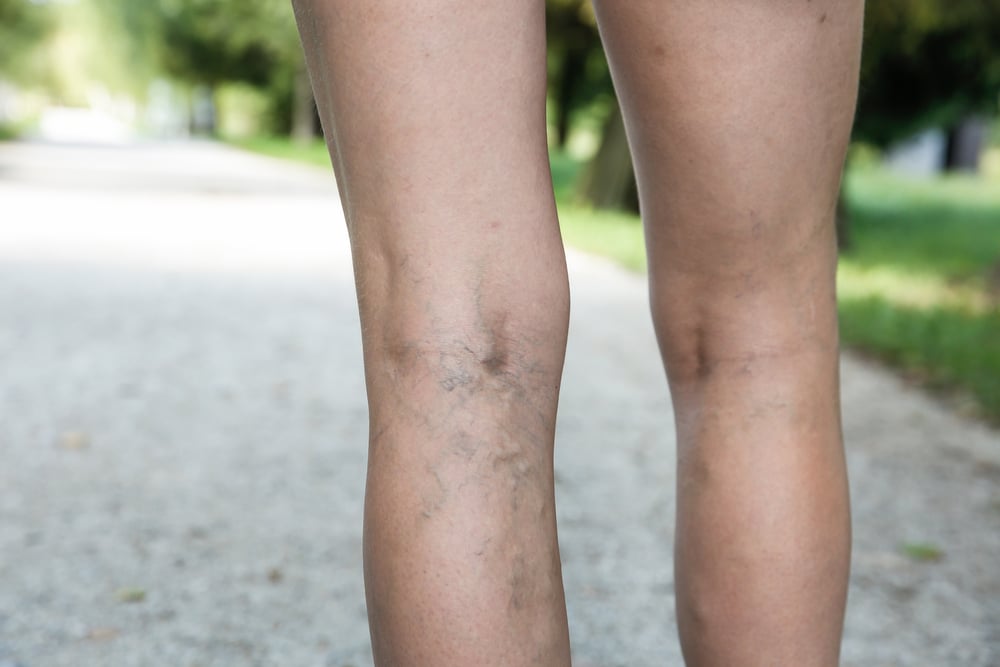Swelling of the legs is abnormal and should be evaluated by a physician if it occurs more than occasionally after a long day of sitting or standing. Pain or tenderness in the legs associated with swelling is an especially important reason to seek evaluation. While some of the causes of leg swelling may be minor self-limiting conditions, others require very urgent medical care to reduce the likelihood of major complications or death. Untreated leg swelling may lead to other complications such as infection, poorly-healing wounds, or clots in leg veins.
Evaluation of leg swelling begins with a review of symptoms, personal and family medical history, and a clinical exam which may include heart, lungs, abdomen, pelvis, legs, and nerve/muscle function in the legs. Further testing is based upon the clinical assessment and may include ultrasound, X-ray, CT, or MRI imaging in the legs or evaluation of the heart or blood vessels in the abdomen or pelvis. The most common failure of diagnosis occurs due to a venous ultrasound study which is performed in a manner to rule out clots, known as deep vein thrombosis, in the deep veins of the legs and does not evaluate for failure of one-way valves in the leg veins (venous insufficiency). It is common for patients with chronic leg swelling to be told that the ultrasound is “normal” or “was negative for clot” while failing to test for treatable venous insufficiency.
Importance of Early Detection in Treating Leg Swelling
Early identification of venous insufficiency or other circulatory issues can make a significant difference. Timely treatment not only alleviates symptoms but also helps prevent more severe complications like skin changes, ulcers, or deep vein thrombosis (DVT). Don’t wait for symptoms to worsen—seek medical guidance if you experience persistent heaviness, swelling, or aching in your legs.

Non-Surgical Treatments for Venous Insufficiency
Many people can effectively manage venous insufficiency without surgery. At Vein Specialists of Geneva, minimally invasive procedures such as sclerotherapy and EVLT offer relief with minimal downtime. These treatments close off malfunctioning veins, rerouting blood flow to healthier ones, and often provide fast symptom improvement.
How to Prevent Leg Swelling During Long Periods of Sitting or Standing
Whether at work or during travel, taking proactive steps can help you prevent leg discomfort:
-
Take breaks to walk and stretch every hour
-
Flex and extend your ankles frequently
-
Use footrests or elevate your legs when possible
-
Stay hydrated
-
Wear compression stockings during long flights or drives
These practices can help keep your circulation flowing and reduce fluid buildup.
The Role of Compression Therapy in Managing Leg Swelling
Compression therapy is a cornerstone of conservative treatment. Specially designed stockings apply graduated pressure that encourages blood flow upward toward the heart. This not only reduces swelling but also alleviates the sensation of heaviness and aching. Your provider can recommend the appropriate level of compression based on your diagnosis.
Why Choose Vein Specialists of Geneva
At Vein Specialists of Geneva, your comfort and health are the top priorities. You receive care from board-certified vein specialists who combine advanced diagnostic tools with personalized treatment plans. Whether you're dealing with chronic symptoms or looking for preventive care, you’ll find expert support every step of the way.
-
Experienced, compassionate providers
-
Minimally invasive treatment options
-
On-site diagnostic imaging
-
Convenient Geneva, IL location
FAQs
What Are the Common Causes of Leg Swelling?
Leg swelling can occur for many reasons, ranging from temporary fluid retention to chronic venous disease. Common causes include:
-
Varicose veins
-
Blood clots
-
Prolonged immobility
-
Obesity
-
Pregnancy
-
Heart, kidney, or liver conditions
When veins in your legs are unable to effectively return blood to your heart, it leads to fluid buildup in the tissues—a condition often worsened by long periods of inactivity.
How Is Venous Insufficiency Diagnosed?
At Vein Specialists of Geneva, a diagnosis typically starts with a detailed discussion of your symptoms and a physical exam. A key diagnostic tool is venous ultrasound, which allows your provider to visualize blood flow and identify any malfunctioning valves or blockages. This non-invasive test is essential for creating a personalized treatment plan tailored to your specific needs.
Can Lifestyle Changes Help Reduce Leg Swelling?
Yes, your daily habits play a significant role in managing leg symptoms. Some lifestyle adjustments that may help include:
-
Regular low-impact exercise, such as walking
-
Elevating your legs when resting
-
Avoiding long periods of sitting or standing
-
Maintaining a healthy weight
-
Wearing prescribed compression stockings
By incorporating these habits into your routine, you can support healthier circulation and reduce leg swelling over time.
Contact our office today at (630) 425-0800 to schedule an appointment with Dr. Kern and begin your journey to healthier, pain free legs.

